When I had a chance to the southwest in the end of November 2016, it was also the end of Mo Qua season. What a pity because all I’d tasted was delicious stir-fried Mo Qua fruits with duck.

The dish seemed much more tastier when Mo Qua fruits went to end of season.
In
a restaurant of my friend in Can Tho city had only 2 Mo Qua fruits (Raven Peak
or Dischidia rafflesiana Wall.) left, in which one was to take photos and
another was to cook. He determined to find a seedling to grow at home.
Folk physicians
As
my friend said that he had been cooking for years but he had only known Mo Qua
flowers until his connection showed him how to cook Mo Qua fruits. Taste of Mo
Qua fruit was absolutely sweet and even more charming than duck.
Dien
Dien flowers (Sesbania sesban) and Mo Qua flowers are like chickens and
pheasants, comparing on quality and nutrition contain.
However,
Mo Qua has several different types, in which have known as “thorny Mo Qua” and
“Mo Qua fruits”. One opinion said that Mo Qua fruits could be brewed together
with traditional sweet herbs to reduce the bitterness.
That
statement seemed total wrong when I tasted stir-fried Mo Qua fruits and duck
that day. The fruits were umami-ly sweet. I didn’t know whether they absorbed
all sweetness of duck or what.
In
the contrary of above opinion, people said that Phu Quoc wine was from thorny
Mo Qua (Maclura tricuspidata). Actually, these thorny fruits belong to Moraceae
family while big Mo Qua is from Asclepiadaceae family.
Big
Mo Qua fruit is hairless and its seeds have hairs from 2 – 5 cm. Because of
these long cilia, the seeds can flow with winds and reproduce. After peak
season, big Mo Qua quickly perishes at the end of November. During my fateful
days in An Giang, all I had was only 1 fruit.
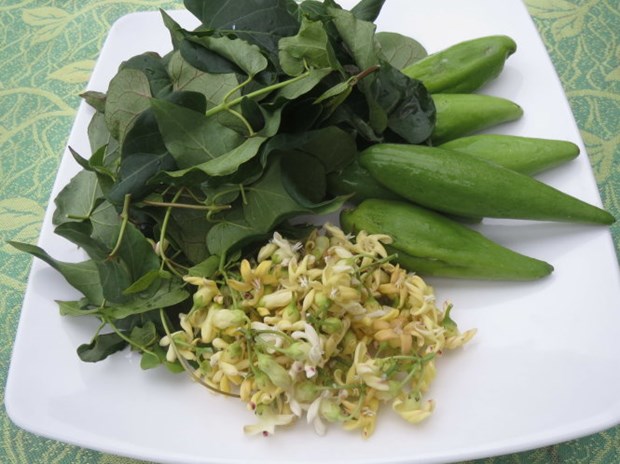
Flowers, leaves and fruits of Malayan urn vine.
Which is more “raven
peak”-like?
This
Tonkin jasmine (Telosma cordata) is also called raven peak by the Southern
Khmer Krom because of the fruits’ shape. To differentiate those 2 types with
the same name, people have called the other as “big Mo Qua”.
About
the thorny berries, which is also called “raven peak”, people explained because
of the shape of mature thorns. Those thorns look very much alike raven peaks
while the real “big Mo Qua” fruits need a lot more imagination.
After
many times testing and failing, my friend concluded that big Mo Qua fruits were
the best with duck, even much more flavorful than with shrimps or squids. The
diversity of homeland ingredients was incredible!
The
more modern this life has become, the more people have come back to our Mother
Nature to look for rustic food left in the wild. Last time I had tasted reed
tips, this time was stir-fried Mo Qua fruits with duck.
I
had not tasted Mo Qua wine, which was one of Phu Quoc’s specialties and
believed that it could help erectile dysfunction, bones and joins pains, and
increase physiological health.
However,
there were neither researches nor scientific conclusion about the usage of Mo
Qua wine.
And
if you want to discover the umami of Mo Qua fruits, simply wait until March and
take a ride to Can Tho city. At that time, my friend might have Mo Qua vines
growing at home with tons of seasonal fruits.
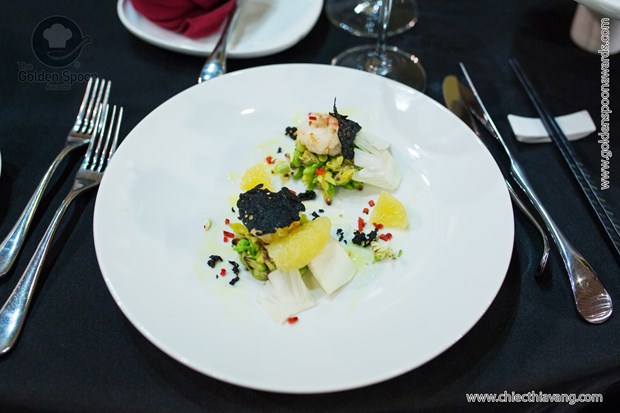
Dish: Malayan urn vine flowers salad with Core of pineapple leafy bract and Giant river prawn in Orange sauce of Team No.1 (Quan Nhi Restaurant) - had introduced it in Southern semi-final round of The Golden Spoon Awards 2016.
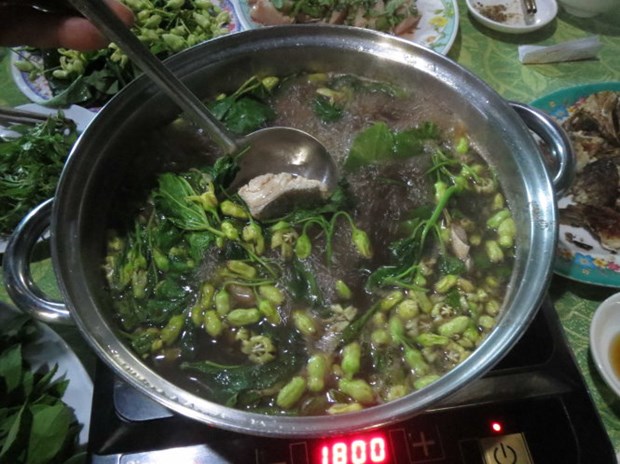
Malayan urn vine flowers are a perfect ingredient for dipping in hot pot.
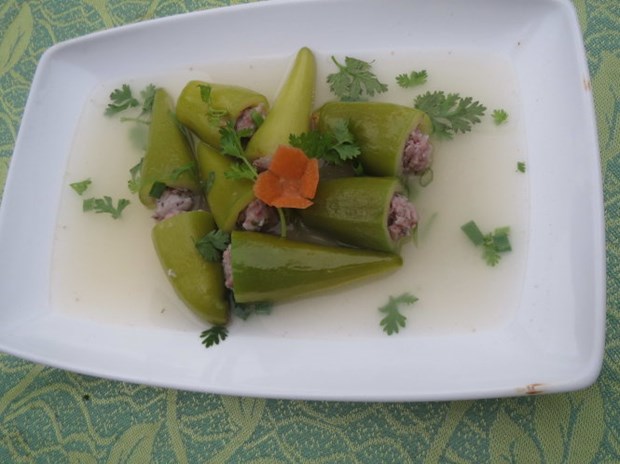
Bronze featherback fish cake stewed with malayan urn vine fruits.
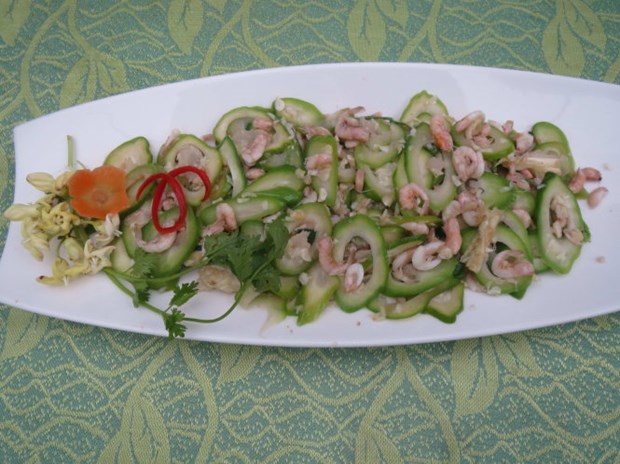
Stir-fried shrimp with malayan urn vine fruits.
Writer: Ngu Yen
Translator: Thu Pham